Tuck’s growing emphasis on health care has until now been a quiet evolution fueled by student interest in a diverse sector full of opportunity for meaningful impact. The school’s Center for Health Care has given new focus to this energy, and as alumni carry it into a world of possibility and persistent challenge, health care has quietly gathered a sense of momentum on campus and throughout the Tuck network.
That subtle groundswell took on a new sense of purpose this year, in which the global pandemic exposed as never before the interdependence of our health, economy and social fabric. Coronavirus brought health care down to gut level and set it against the backdrop of a U.S. election that turned on pandemic response and, more broadly, on how the county’s $3.6 trillion health care industry should be structured and financed. That question is often portrayed as something of an economic Gordian knot, particularly in the United States, which spends nearly twice as much per capita on health care as other developed nations and yet, for reasons both complex and deeply entrenched, obtains worse results.
Paradoxically, this complexity may explain the field’s growing popularity at Tuck. No industry today combines such pressing need for wise leadership with so much opportunity for meaningful and impactful careers. “We’re seeing more students coming to Tuck with great health care backgrounds, and many students are also finding health care when they’re at Tuck," says Suzie Rubin, executive director of Tuck’s Center for Health Care. Nearly a quarter of Tuck students are enrolled in health care courses this year, and in 2020, 8 percent of students accepted full-time jobs and 12 percent of students interned in health care.
When the virus first surged in April, Kate Zeghibe T’22 co-founded Emotional PPE, an organization that facilitates free counseling for medical workers on the front lines of the pandemic. As the nonprofit’s treasurer, she helped build it into a national campaign while maintaining her socially distanced first year studies in Hanover. As part of an all-female team of scientist “Nerdy Girls,” Clinical Professor Lindsey Leininger, who teaches Health Care Analytics & Society at Tuck, launched an educational campaign providing timely and trustworthy information about the pandemic (@Dear Pandemic). The efforts brought renewed attention to health care at Tuck, which has deep roots and gathered impetus in 2018 when the Center for Health Care became the newest of Tuck’s six centers.
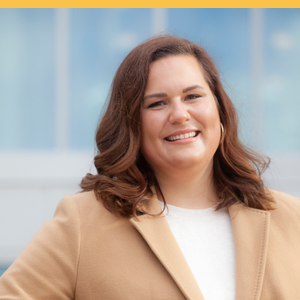
T'22
Kate Zeghibe
Treasurer and Board Member, Emotional PPE
Chair, Health care Private Equity Association
On Integrating Medical Treatment and Behavioral Health
“The mental health stigma that medical workers are facing isn’t just related to COVID. It’s existed all along. Nearly half of health care workers say they’re not comfortable seeking mental health treatment because they're afraid of repercussions from employers and things like board re-certifications where they can be asked if they've had mental health treatment.”
- The Journey
Kate Zeghibe T’22 was working at a biotech firm in Cambridge, Mass. when a colleague’s conversation with a neighbor drove home the pandemic’s emotional toll on front-line medical workers. The colleague was Ariel Brown, a neuroscientist and medical writer with whom Zeghibe had worked as a program manager on the first drug approved to treat postpartum depression. The neighbor, Dr. Daniel Saddawi-Konefka, was an ICU specialist at Mass General Hospital, which was reeling from the first wave of COVID-19 patients.
When Brown asked what she could do to help, Saddawi-Konefka shared his anguish over the emotional stress his colleagues were experiencing. “He was concerned at that moment about the health of his residents because they were being forced to make really difficult decisions,” Zeghibe says. “They were staying with people as they were dying, watching families say goodbye over FaceTime.”
- The Calling
That evening, Brown reached out to mental health professionals on social media and community listservs. “Can you help by volunteering some of your time?” she asked, and within eight hours had received 67 responses from practitioners in Massachusetts alone. That was the genesis of Emotional PPE, a network of licensed volunteers that provides free and confidential counseling to front-line medical personnel. Zeghibe’s job was to give it structure and scale.
“We wanted this thing to be real, so Ariel asked me to come on board as treasurer and put together a budget and formulate it as a real organization,” Zeghibe says. Emotional PPE was up and running on April 15 with a volunteer network of about 60 therapists in Massachusetts. Four months later, as Zeghibe started her Tuck MBA studies at end of August, the network was active in all 50 states.
- Going Forward
Even with a full (and socially distanced) course load at Tuck, Zeghibe continues to manage Emotional PPE’s finances and help guide it through a 50-state regulatory thicket. Along the way, she’s renewed her commitment to health care, and reinforced her conviction that business skills can have a real impact at the clinical level. “You don't have to be a doctor or a nurse to be able to improve the lives of people within the health care system,” she says.
Formerly the Tuck Health Care Initiative, it serves as a nexus for the surging interest in health care throughout the Tuck community, preparing students for opportunities in traditional health care companies as well as roles in related industries that require deep health care knowledge. “The center is designed for students who have an in-depth interest in health care and for those who want to understand health care in preparation for careers such as consulting, banking or entrepreneurship,” Rubin explains.
The center draws together faculty scholarship, student energy and the real-world experience of alumni and industry leaders. Tuck’s growing health care tradition likewise benefits from sister institutions at Dartmouth, particularly the Geisel School of Medicine and The Dartmouth Institute for Health Policy and Clinical Practice (TDI). Tuck offers joint degree programs with both, as well as the innovative Master of Health Care Delivery Science (MHCDS) degree program for midcareer health care professionals, offered through Dartmouth in partnership with TDI. Tapping the management expertise of Tuck faculty and TDI’s pioneering work in the science of measuring health care delivery and outcomes, the program helps participants develop the skills to lead critical transformations within their organizations and across the health care industry. Many have found themselves on the front lines of the pandemic response.
Less than three months after finishing the program, Cleveland Clinic Chief Research Information Officer Lara Jehi MHCDS’20 had just three days to design and launch a data registry to complement the clinic’s coronavirus testing program. The resulting dataset has been a critical tool for researchers around the world who are battling the pandemic, and gave Jehi the insights she needed to identify—and then reverse—higher coronavirus rates among Cleveland’s African American and Latino communities.
Another of the program’s graduates, Tracie Collins MHCDS’18, was tapped as New Mexico’s secretary of health in December, as the virus surged anew and a vaccine became available. She credits Tuck faculty in the program with helping her develop the leadership skills she’ll need to orchestrate vaccine distribution, while simultaneously addressing the state’s longer-term population health challenges.
That task encapsulates the challenge facing health care leaders everywhere, as the pandemic rages and underlying difficulties loom as large as ever. Yet even in this critical moment, there’s cause for optimism. Advances in everything from artificial intelligence to our understanding of the human genome are fueling great leaps in clinical care, while less-flashy payment reforms hold even greater promise to improve the lives of many. Tuck and MHCDS alumni, as we’ll see in the following stories, have a role to play in these and many other health care innovations.
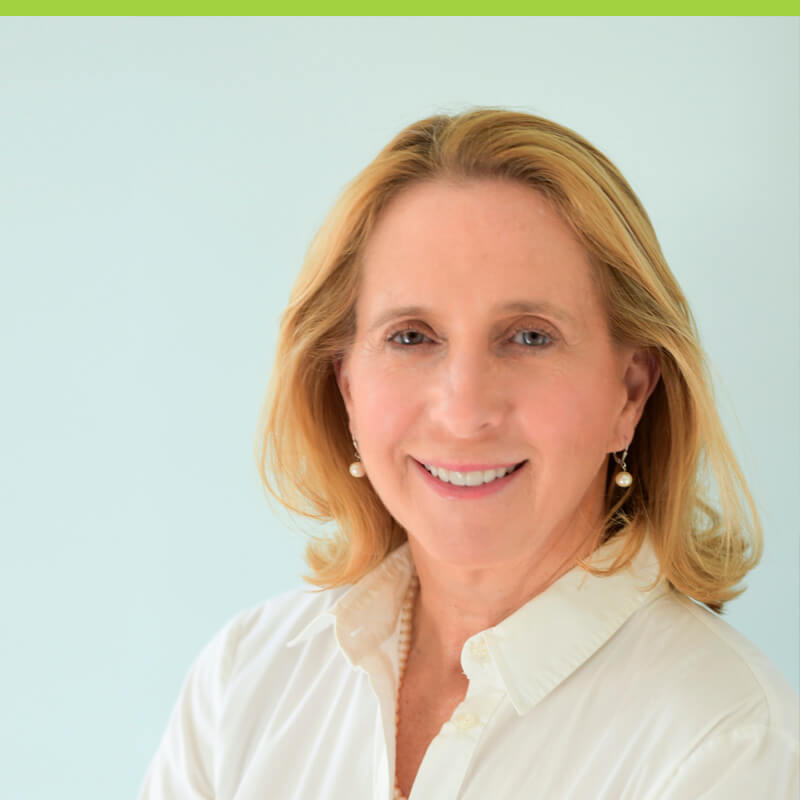
T'85
Diane Daych
On Integrating Medical Treatment and Behavioral Health
“Historically, the clinical models separated the medical treatment from behavioral health. Now it’s becoming widely recognized that they should be integrated, and not just in areas like substance abuse. Even for cardiac patients, so much of their ability to recover is driven by the mental health side of the equation.”
— Diane Daych T'85
Managing Partner and Co-Founder, Granite Growth Health Partners
Chair, Health care Private Equity Association
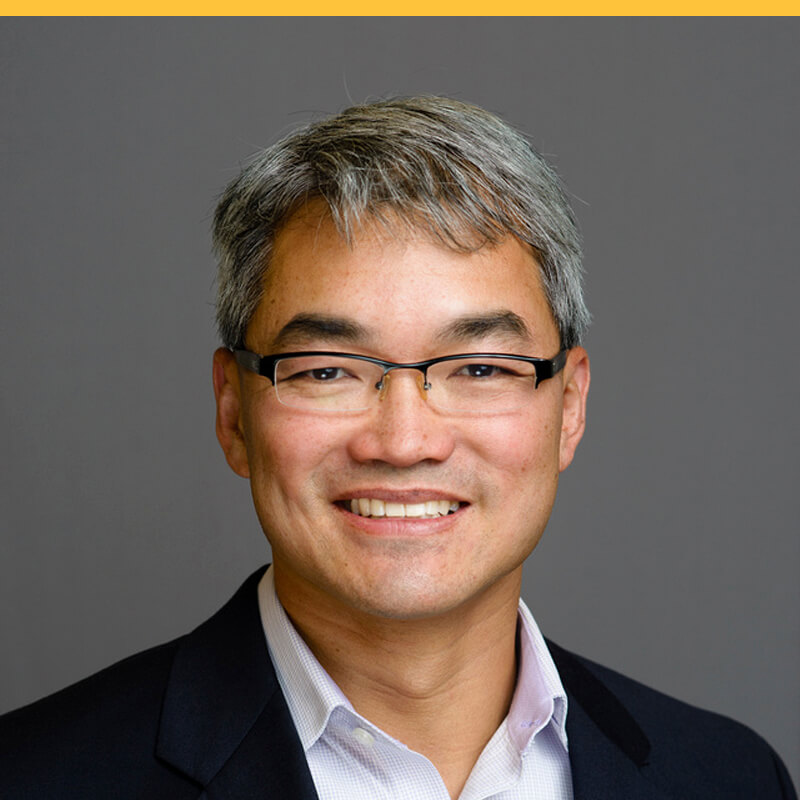
T'00
Phong Nguyen
On Rising Health Care Costs
“ The health care journey at every turn is inefficient and fragmented and difficult to understand,” Nguyen says, citing studies that show about one in three dollars spent on health care in the United States is wasted. “If we change that, we can transform the lives of millions of people.”
— Phong Nguyen T'00
Chief Operating Officer, Accolade, Inc.

D’79 MHCDS’18
Matthew Gibb
On Equity and Access
“One of the biggest issues in health care is availability and access to care in a way that's fair. Our politics are heavily polarized around that, and I'm a big believer that we have spent far too much in the United States on highly expensive, technical and perhaps end-of-life care compared to European and Asian countries, and far less on the social determinants such as food, housing and education.”
— Matthew Gibb, MD
Chief Clinical Officer, Concord Hospital
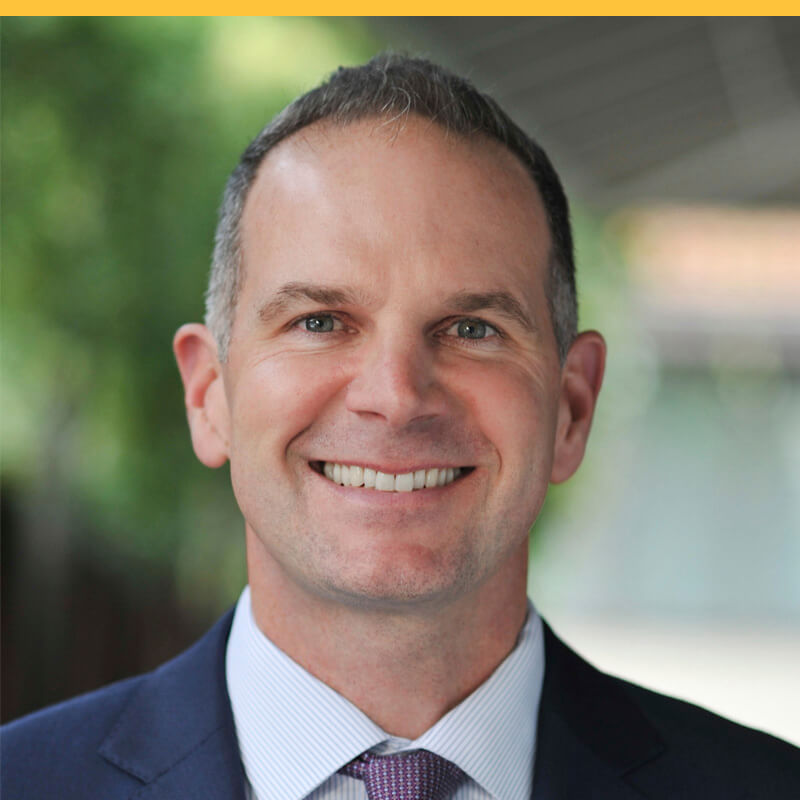
T'07, GEISEL '08
Si France
On Serving Those with Greatest Need
“ We don't have a health care system that's designed to help the people who most need health care. From any kind of perspective, whether ethical, sociological or economic, better serving the frail high utilizers is the obvious answer. That's true whether you're trying to build communities, reset the cost curve or deliver better medicine. ”
— Si France, MD T'07, GEISEL '08
Founder & CEO at Welbehealth
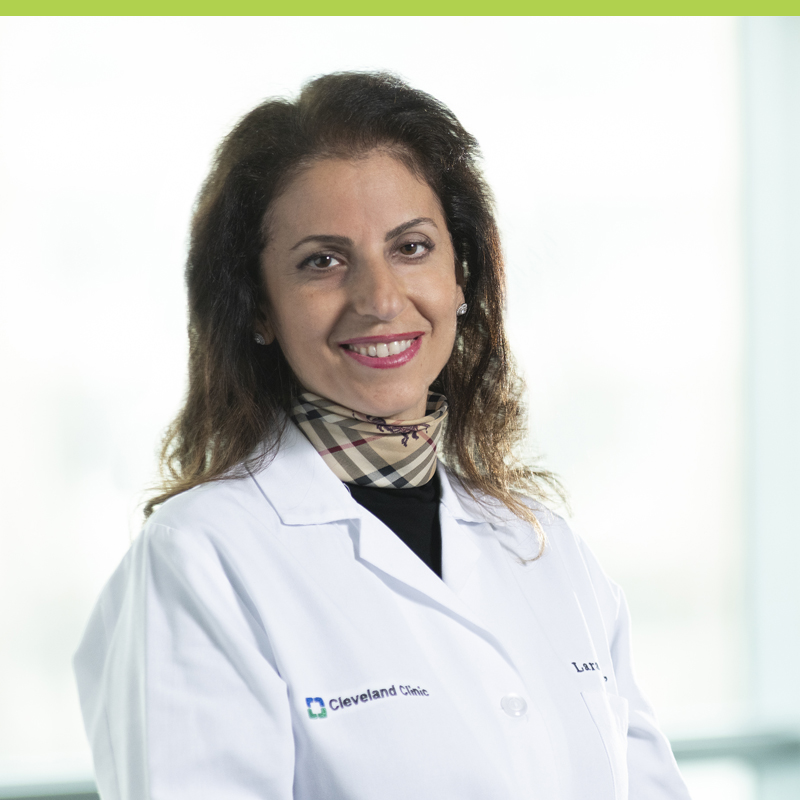
MHCDS‘20
Lara Jehi
On Responsibility to the Patient
“We’ve built an organizational commitment to leverage clinical information so that we can truly shape innovation and provide better care for our patients. I see that as our responsibility. Our patients trust us. We owe it to them to be good stewards of their data so that we can learn as quickly as possible how to give them better care.”
— Lara Jehi, MD
Chief Research Information Officer, Cleveland Clinic
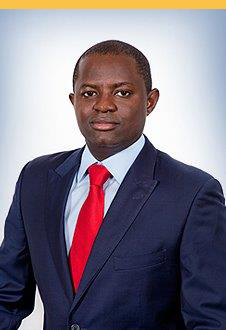
T'11
Enoch Kariuki
On Finance and Innovation
“Big Pharma companies have essentially given up on early stage research. Really good innovation happens in academic labs and in smaller biotech companies, and so we have this trend where big pharma companies are constantly on the hunt for the next new technologies, and you have this inflow of capital coming into the biotech space, chasing this high return.”
— Enoch Kariuki T’11
Chief Financial Officer, VelosBio, Inc.
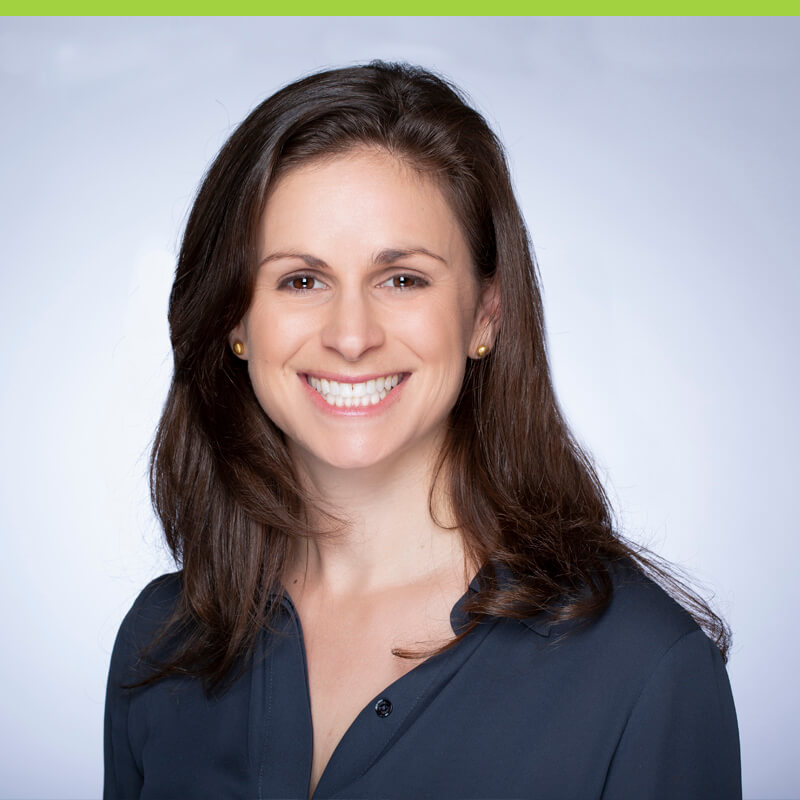
T'08
Julie Skaff
On the Affordable Care Act
“Looking at the broader arc, it’s too late to go back to the way health care was before the ACA. That's the reason the repeal failed: people want expanded coverage. They absolutely want coverage until they're 26 on their parents’ plan, and the notion of excluding people with preexisting conditions sounds inhumane. The momentum is now that health care is a right, not a privilege, so regardless of which political party is in power, that's the direction we're going.”
— Julie Skaff T'08
Chief Operating Officer, Viz.ai

T’14
E. Selemon Asfaw
On the Importance of Behavioral Health Care
“ What I'm seeing in my generation right now is an immense need for behavioral health care. There's a strong linkage between mental health ailments that can be as simple as moderate depression, and someone ending up in a hospital or in an acute situation. And we haven't done a good enough job of understanding that. We haven't done a good enough job of addressing it.”
— E. Selemon Asfaw T'14
Chief Financial Officer, OptumCare

MHCDS’18
Tracie Collins
On Social Determinants of Health
“The clinical setting directly influences about 20 percent of the outcomes and the patient’s genetic predisposition accounts for another 20 percent. That leaves about 60 percent of outcomes that are influenced by upstream factors related to housing, employment, education, social network. Those social determinants are actually driving health outcomes.”
— Tracie Collins, MD
Secretary of Health, State of New Mexico
Meet Tuck Alumni in Health Care












